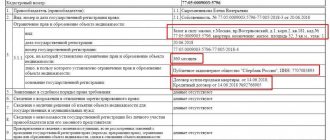What do banks offer?
Typically, lending organizations give three options if you want to pay off your mortgage quickly and sell your home .
- Repay the loan in full. It is clear that not everyone is able to shell out a large amount of money at once.
- Transfer the debt to a third party. This approach is fraught with difficulties: firstly, it is necessary to find such a third party, and secondly, the banks themselves are often against it, because such a development worsens the quality of the loan to the Central Bank.
- Replacement of collateral. Equal to apartment exchange. We'll talk more about this option.
Transaction via consumer loan
Transaction without the participation of a bank
It is possible to exclude the bank from the housing exchange chain with the help of a consumer loan. Using a consumer loan to pay off a mortgage is possible if the amount of the remaining debt is not very large and if the borrower has sufficient income to obtain another loan from the bank.
Borrower's procedure:
- we issue a consumer loan for the required amount;
- paying off the mortgage;
- we remove the bank's encumbrance from the apartment;
- we sell real estate without restrictions;
- We are buying a new apartment.
The downside is higher interest rates on a consumer loan than on a mortgage. Additional complications in this scheme are possible if the new housing costs more than the sold apartment. Then you will have to take out a consumer loan for a larger amount or look for other ways to pay the difference. You can get a new mortgage - it will still be easier than the double purchase and sale of mortgaged housing with the participation of the bank.
Is it possible to exchange mortgaged housing for another?
Yes, you can exchange mortgaged real estate, but subject to certain conditions.
What do you need to know?
Banks dictate conditions under which you can exchange housing only for a real apartment . This point is worth keeping in mind for families hoping to move into a home under construction. The lender must evaluate the new loan facility.
Please note: the borrower pays for the appraisal.
When exchanging housing, you must provide a package of documents identical to those required for a mortgage agreement. The list is quite extensive, here are just some of the most important:
- application form for obtaining a loan;
- passport;
- a copy of the work book;
- SNILS, documents for housing;
- marriage certificate or divorce certificate;
- children's birth certificates.
The list may expand or narrow depending on the requirements of the lending organization.
Additionally, banks require an application to increase the size of the mortgage by an amount equal to the difference between the old and new home (if any). Often, the borrower is required to pay a down payment on a new home.
Options
The simple option is not even a classic exchange as such. First, you need to sell the mortgaged apartment and use the proceeds to buy a new home. We will talk about it at the end of the article.
A complex option involves the simultaneous conclusion of two sales and purchase agreements between the bank and the borrower and between the borrower and the real estate seller. In this case, pay attention to the following things:
- take official confirmation from the bank that it does not object to the exchange of the apartment;
- the apartment that the borrower sells will legally still be pledged to the bank;
- after registering the borrower’s ownership of the new property, it becomes collateral to the credit institution;
- the bank agrees to remove the encumbrance from the sold apartment, and the new owner gets the opportunity to undergo state registration of ownership.
How to obtain the bank's consent?
Since the property is pledged to a credit institution, you need to obtain its consent . This is stated in Article 37 of Federal Law No. 102-FZ “On Mortgage”. For everything to happen without delay, a significant part of the mortgage loan must already be repaid without delay. As a rule, 4-5 years of regular payments are sufficient.
An advantage will be the cost of new real estate, which should be less than or equal to the mortgaged property, and the high liquidity of the purchased housing.
Then the borrower must submit a written request to the bank, indicating that he needs permission to exchange mortgage housing. A package of documents is attached to the application:
- passport (original and copy);
- passport and written consent of the co-borrower (if available);
- marriage certificate (if available), spouse’s consent to the exchange;
- copy of personal account;
- extract from the house register;
- documents confirming the timeliness of payments.
How to exchange for a home?
The procedure for exchanging real estate is established by Chapter 31 of the Civil Code of Russia. When exchanging an apartment for a house, it is proposed to either find an equivalent property, or an unequal one with a subsequent surcharge. The cost of housing is determined by an appraisal , which is paid by the borrower.
The purchase and sale agreement will indicate not only information about the house, but also the characteristics of the land plot. It is also necessary to indicate the land plot in the transfer and acceptance certificate.
Important: All accompanying documents must be clean, and the land plot should preferably have no encumbrances.
If they exist, they are specified in the contract.
Military mortgage: is there a chance to exchange an apartment?
The procedure is even more complicated if the apartment is issued with a military mortgage. In fact, the housing is double pledged: from the bank and from Rosvoenipoteka. But even in this case, there are two ways to resolve the exchange issue.
If the situation when it is necessary to exchange an apartment is related to the direct transfer of a military personnel to another city for service, then the agreement provides for an exchange under the “Moving” program. The procedure is similar to that described above for an equivalent exchange; the collateral is changed. The only requirement is that the housing chosen for moving must be similar to the collateral property and be located at the place of service of the person liable for military service.
In another case, the procedure requires repayment of both the mortgage loan and the amount of Rosvoenipoteka’s deductions for the CZLZ. After the encumbrance is removed, the serviceman has the right to draw up an agreement for the sale of the apartment. A new military mortgage agreement can be drawn up for new housing.
Features of the procedure
Procedure steps:
- Obtaining permission from the bank. We discussed this in detail above.
- Finding a buyer and agreeing on the terms of the transaction.
- Deal.
What documents to collect and what to pay attention to?
Equal property
This is the simplest option. To check the safety of the apartment, you need to order extracts from the housing department, USRN, and house management. They are paid by the borrower.
If all documents are in order, the parties begin to conclude an agreement , simultaneously drawing up an exchange agreement, transfer of a new pledge and removal of the encumbrance from the old apartment.
More expensive and larger area
If the bank immediately agrees to a transaction with an additional payment, then the sequence of actions is identical to the exchange for equivalent housing. If the lender refuses, citizens try to sell their mortgaged home while simultaneously applying for a new loan.
Bank approval often follows a simplified procedure: for this it is important to have a clean credit history and good quality new collateral that suits the lender.
When the borrower receives consent for both applications, he draws up two contracts: for the sale of the old one and the purchase of the new one. In this case, the procedure for registering a deposit for new housing is carried out first . The old apartment is still under an encumbrance, which is removed after concluding a new loan agreement.
A private house
In addition to the documents for the house, which are identical to the documents for the apartment, which we discussed above, you will need special papers for the land plot:
- documents confirming ownership of it;
- an extract from the Unified State Register of Real Estate (until 2021, its function was performed by a cadastral passport for land);
- information from the cadastral authority that the plot is not subject to encumbrance.
Conclusion of an agreement
The purchase and sale agreement for the exchange of mortgage housing is drawn up in simple written form. It must contain the following points:
- subject (what kind of living space);
- price and payment procedure (immediately or in parts);
- list of persons registered in the apartment.
If desired, the parties include in the documents the period when the apartment will be empty and transferred , the seller’s obligation to pay for utilities until the date of eviction, etc.
Sometimes the parties enter into an advance agreement if irrefutable proof of payment is required. It would be useful to indicate in the contract that the advance must be returned to the buyer if circumstances are discovered that impede the transaction. Otherwise, the buyer risks losing both money and new housing.
Instead of an advance agreement, it is possible to use a preliminary agreement, which will indicate the firm intentions of the parties.
Registration of a transaction
At the time of the transaction, the buyer must have an amount sufficient to cover the mortgage , which is divided into two parts. The first, equal to the balance of the loan, is sent for full early repayment of the loan. The second is placed in a safe deposit box with certain access conditions. This money is intended for the seller of the new home; it will be transferred after registration.
Important: the buyer will have to obtain a loan from the same bank as the seller’s loan. Exceptions are rare and extremely difficult to document.
After concluding the transaction, it is necessary to submit the entire package of documents from the bank to Rosreestr , where the buyer will be registered as the new owner. This is necessary to remove the burden. After completing this procedure, the buyer receives the housing and the rights to it, and the seller receives the difference between the price of the apartment and the mortgage amount that was pledged to the unit.
In the future, all that remains is to sign the acceptance certificates and celebrate the housewarming.
Difficult moments when registering an apartment exchange: what needs to be calculated in advance
The procedure associated with exchanging an apartment with a mortgage takes place in several stages and can last for months. A preliminary consultation with the bank will help significantly speed up the exchange: the procedure for carrying out the procedure will be determined in advance and consent to the transaction will be obtained.
If the housing that is pledged was purchased through the mediation of a real estate organization cooperating with the bank, then it is better to entrust the exchange with the search for suitable options to the same specialists: it will be possible to save time on checking the seller and the apartment. In addition, there is a greater chance of finding a seller who will agree to a risky deal - after all, it is he who has to pledge his own apartment as collateral, without having a formal right of ownership of the housing acquired as a result of the exchange.
Conditions
To carry out a mortgage exchange, a number of conditions must be met:
- You need to make sure that there are no defaults on the loan.
- Only real estate that has already been put into operation can be exchanged.
- At least 2 years must pass from the date of registration of the mortgage. Some banks increase this period to half the entire debt repayment period.
- The housing into which the borrower will move must meet the lender's requirements: good area, proximity to a bank branch, etc. Conditions may vary depending on the bank's policy.
The importance of price differences
In this case, the difference in price between the two apartments plays a big role. Because of this, the client has to write an additional application to change the size of the mortgage according to the price difference. There may be three options:
- The most possible option is an equivalent exchange of living space, when the client exchanges a house under a mortgage encumbrance or an apartment for real estate of equal market price. Moreover, it may be that the housing is smaller in area, but newer and of higher quality. Or for a larger area, but worse in quality. In both cases the price is equal. For the bank, and also for the borrower, this option is attractive due to its relative simplicity and speed. One of the key factors is the location of the property chosen by the borrower. If the apartment is located in a building that is located near a branch of the lending bank, then the likelihood of getting approval for the transaction becomes even higher.
- A situation where another apartment/house is more expensive. Here the beneficiary has an even greater interest, since the new collateral will have a higher market value, and therefore greater protection against costs. It’s good when the price difference exceeds 20%. Then the bank will probably give permission for the exchange with an additional payment. For the borrower, the main problem will be where to get the money for the additional payment. Some take out a consumer loan for this, becoming a client of two banks.
- On the contrary, when another apartment/house is cheaper. The most difficult option, since here the bank is never interested in receiving cheaper real estate as collateral. The lender will give consent only when at least 2/3 of the entire mortgage has been repaid. Therefore, the borrower will have to either wait or find additional funds for a large early lump sum payment. For example, the same consumer loan. By the way, since here the borrower will already receive an additional payment, he can use it to repay the consumer loan taken out.









